Best AI tools for< Tokenize Text >
8 - AI tool Sites

NLTK
NLTK (Natural Language Toolkit) is a leading platform for building Python programs to work with human language data. It provides easy-to-use interfaces to over 50 corpora and lexical resources such as WordNet, along with a suite of text processing libraries for classification, tokenization, stemming, tagging, parsing, and semantic reasoning, wrappers for industrial-strength NLP libraries, and an active discussion forum. Thanks to a hands-on guide introducing programming fundamentals alongside topics in computational linguistics, plus comprehensive API documentation, NLTK is suitable for linguists, engineers, students, educators, researchers, and industry users alike.
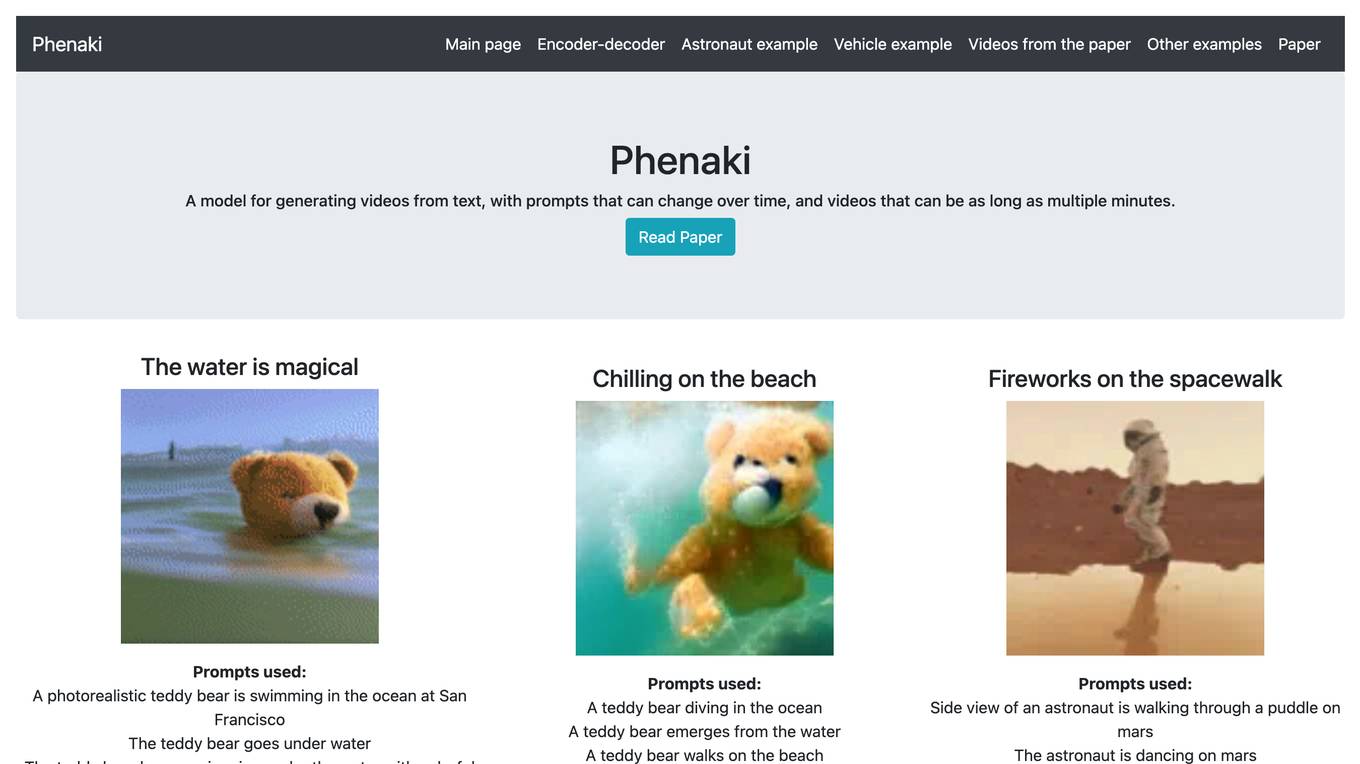
Phenaki
Phenaki is a model capable of generating realistic videos from a sequence of textual prompts. It is particularly challenging to generate videos from text due to the computational cost, limited quantities of high-quality text-video data, and variable length of videos. To address these issues, Phenaki introduces a new causal model for learning video representation, which compresses the video to a small representation of discrete tokens. This tokenizer uses causal attention in time, which allows it to work with variable-length videos. To generate video tokens from text, Phenaki uses a bidirectional masked transformer conditioned on pre-computed text tokens. The generated video tokens are subsequently de-tokenized to create the actual video. To address data issues, Phenaki demonstrates how joint training on a large corpus of image-text pairs as well as a smaller number of video-text examples can result in generalization beyond what is available in the video datasets. Compared to previous video generation methods, Phenaki can generate arbitrarily long videos conditioned on a sequence of prompts (i.e., time-variable text or a story) in an open domain. To the best of our knowledge, this is the first time a paper studies generating videos from time-variable prompts. In addition, the proposed video encoder-decoder outperforms all per-frame baselines currently used in the literature in terms of spatio-temporal quality and the number of tokens per video.
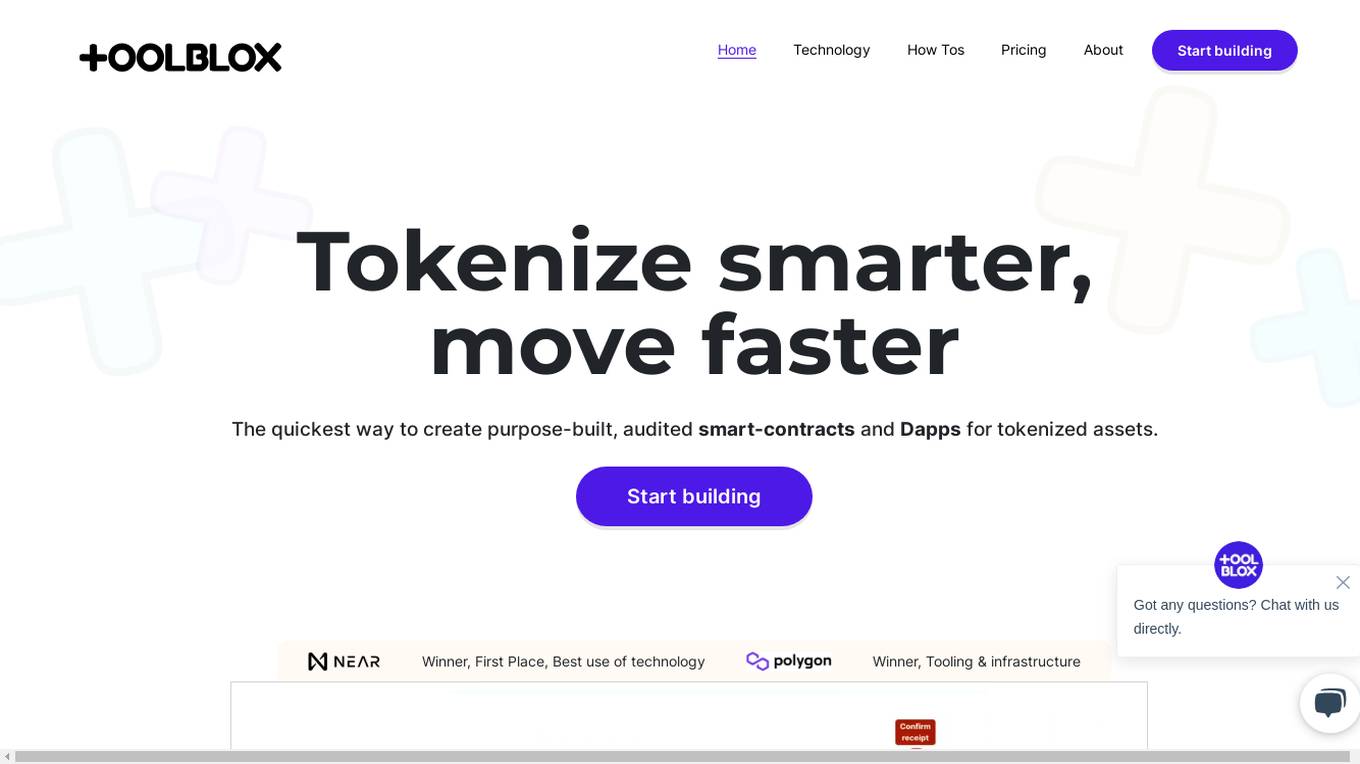
Toolblox
Toolblox is an AI-powered platform that enables users to create purpose-built, audited smart-contracts and Dapps for tokenized assets quickly and efficiently. It offers a no-code solution for turning ideas into smart-contracts, visualizing workflows, and creating tokenization solutions. With pre-audited smart-contracts, examples, and an AI assistant, Toolblox simplifies the process of building and launching decentralized applications. The platform caters to founders, agencies, and businesses looking to streamline their operations and leverage blockchain technology.

Basis Theory
Basis Theory is a token orchestration platform that helps businesses route transactions through multiple payment service providers (PSPs) and partners, enabling seamless subscription payments while maintaining PCI compliance. The platform offers secure and transparent payment flows, allowing users to connect to any partner or platform, collect and store card data securely, and customize payment strategies for various use cases. Basis Theory empowers high-risk merchants, subscription platforms, marketplaces, fintechs, and other businesses to optimize their payment processes and enhance customer experiences.
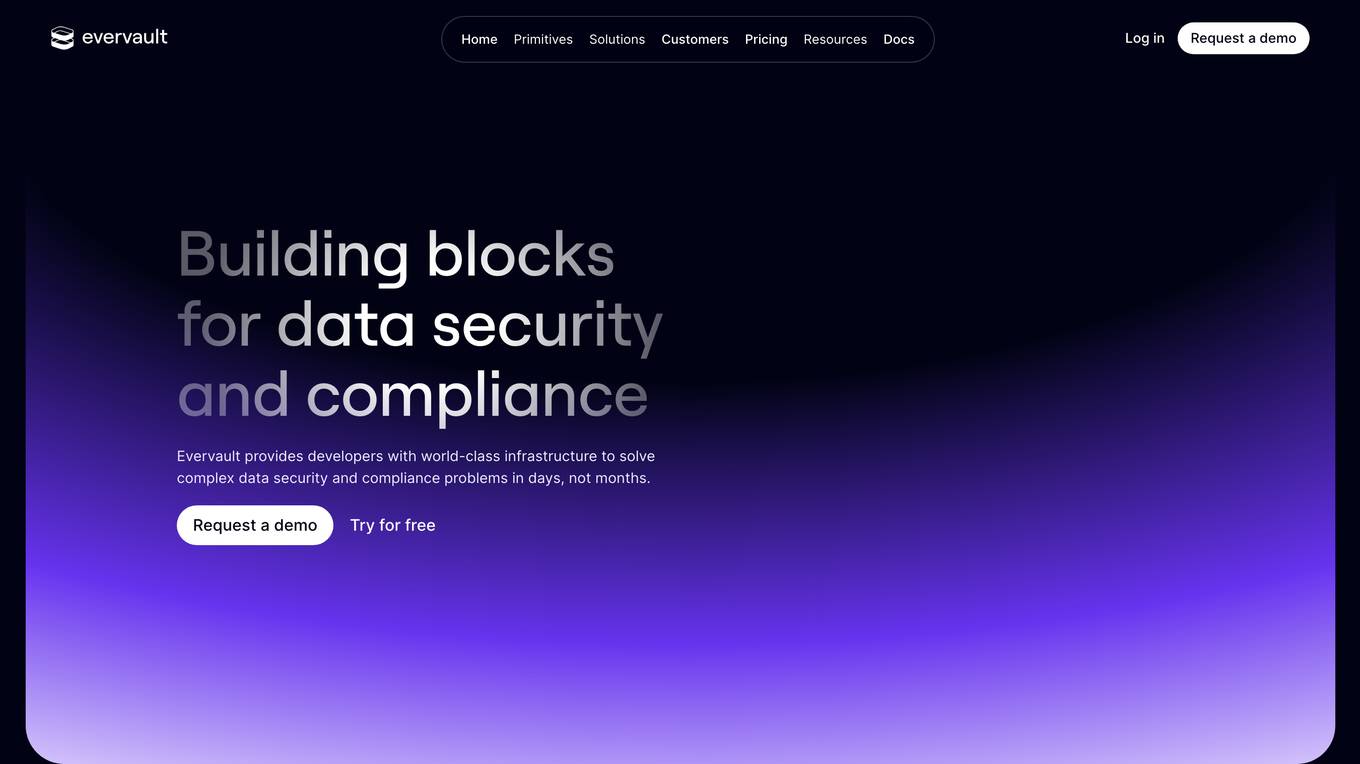
Evervault
Evervault is a flexible payments security platform that provides maximum protection with minimum compliance burden. It allows users to easily tokenize cards, optimize margins, comply with PCI standards, avoid gateway lock-in, and set up card issuing programs. Evervault is trusted by global leaders for securing sensitive payment data and offers features like PCI compliance, payments optimization, card issuing, network tokens, key management, and more. The platform enables users to accelerate card product launches, build complex card sharing workflows, optimize payment performance, and run highly sensitive payment operations. Evervault's unique encryption model ensures data security, reduced risk of data breach, improved performance, and maximum resiliency. It offers agile payments infrastructure, customizable UI components, cross-platform support, and effortless scalability, making it a developer-friendly solution for securing payment data.
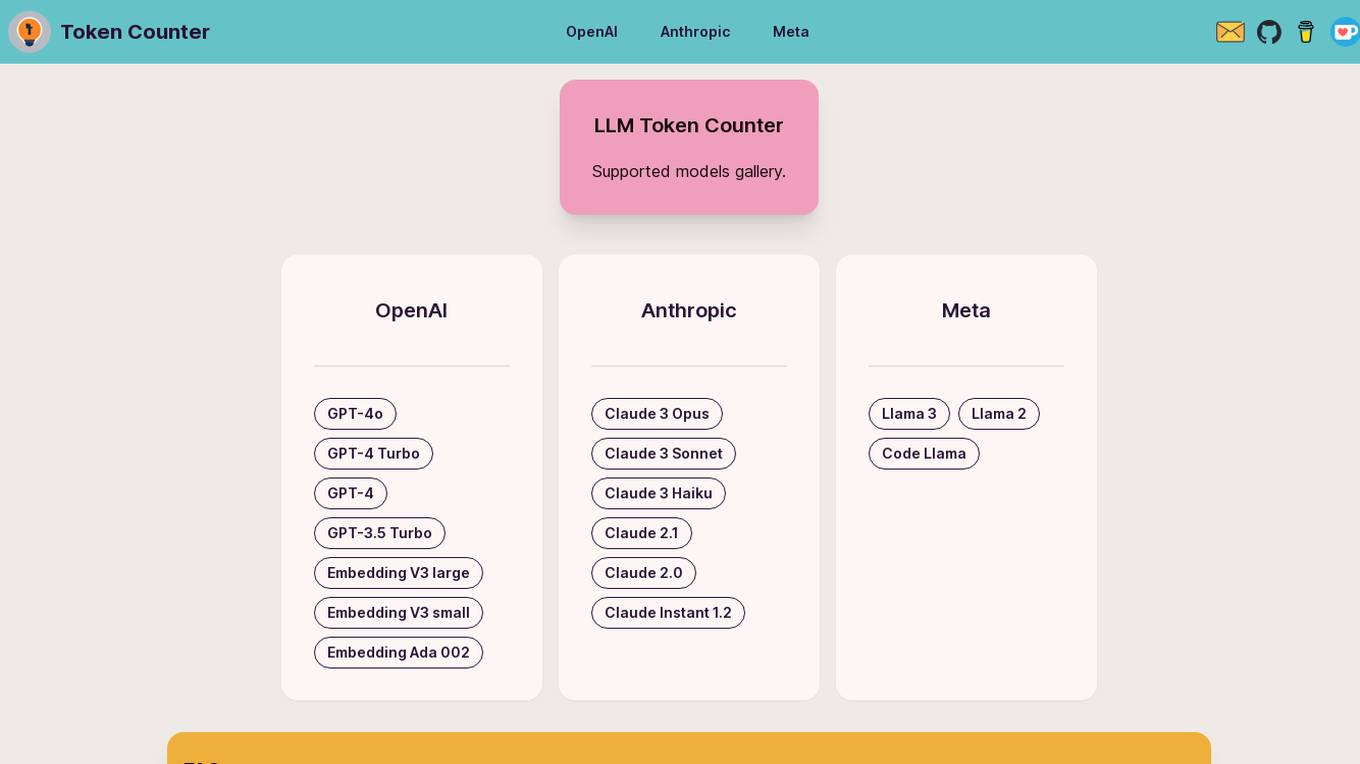
LLM Token Counter
The LLM Token Counter is a sophisticated tool designed to help users effectively manage token limits for various Language Models (LLMs) like GPT-3.5, GPT-4, Claude-3, Llama-3, and more. It utilizes Transformers.js, a JavaScript implementation of the Hugging Face Transformers library, to calculate token counts client-side. The tool ensures data privacy by not transmitting prompts to external servers.
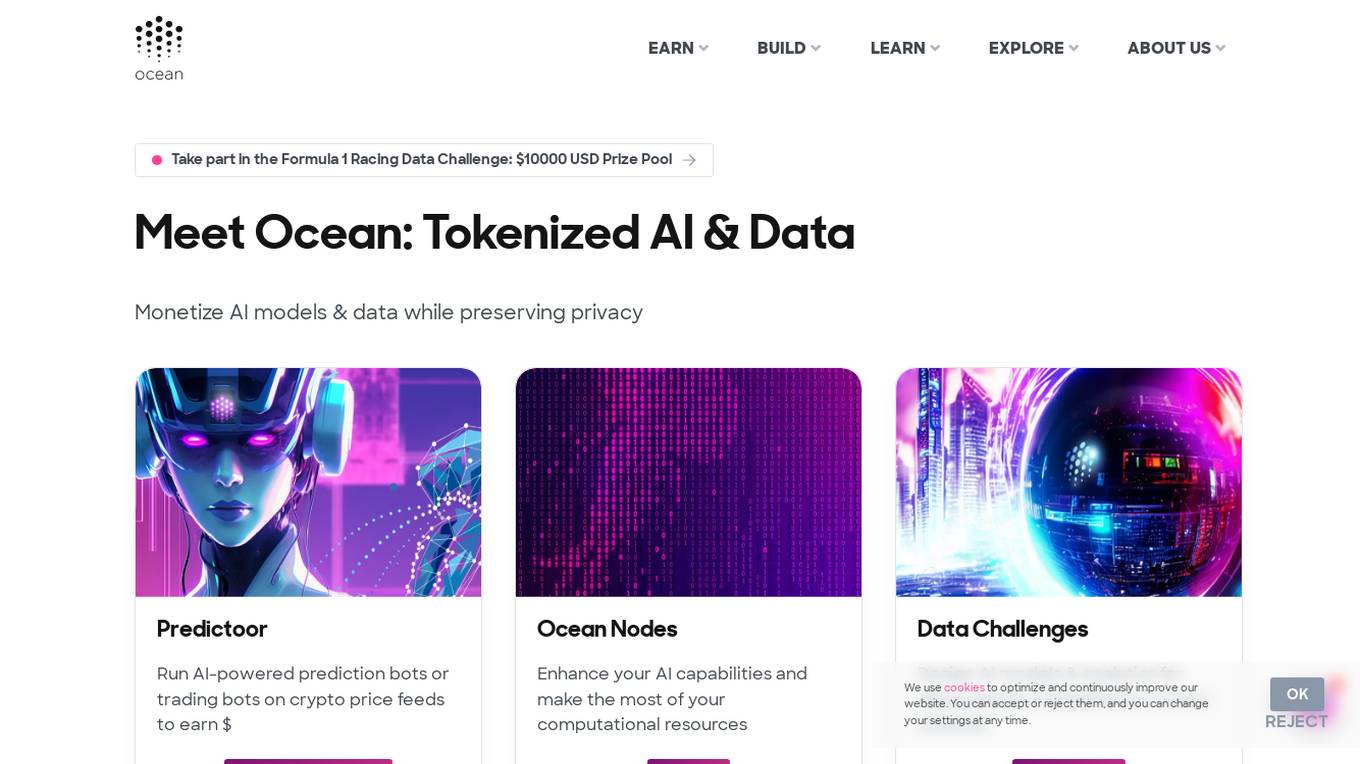
Ocean Protocol
Ocean Protocol is a tokenized AI and data platform that enables users to monetize AI models and data while maintaining privacy. It offers tools like Predictoor for running AI-powered prediction bots, Ocean Nodes for enhancing AI capabilities, and features like Data NFTs and Datatokens for protecting intellectual property and controlling data access. The platform focuses on decentralized AI, privacy, and modular architecture to empower users in the AI and data science domains.
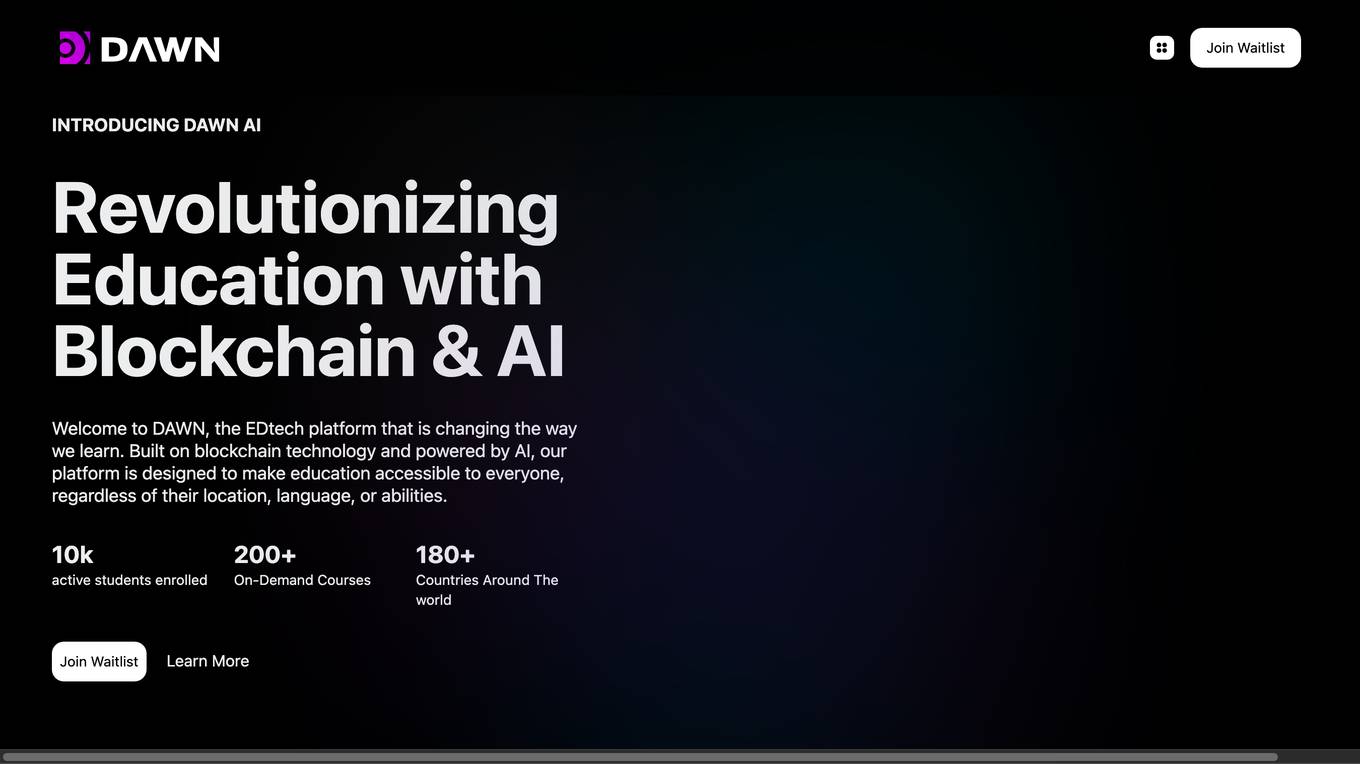
DAWN AI
DAWN AI is an EDtech platform that is revolutionizing education with blockchain and AI. It is designed to make education accessible to everyone, regardless of their location, language, or abilities. DAWN offers a complete suite of blockchain-scaling solutions, including course transcription, AI recruitment services, a dyslexia-friendly platform, closed captioning and sign language interpretation, and tokenized affiliate marketing. It also has a Learn and Earn program in the metaverse, where learners can earn tokens by completing educational challenges and tasks in virtual worlds.
7 - Open Source AI Tools
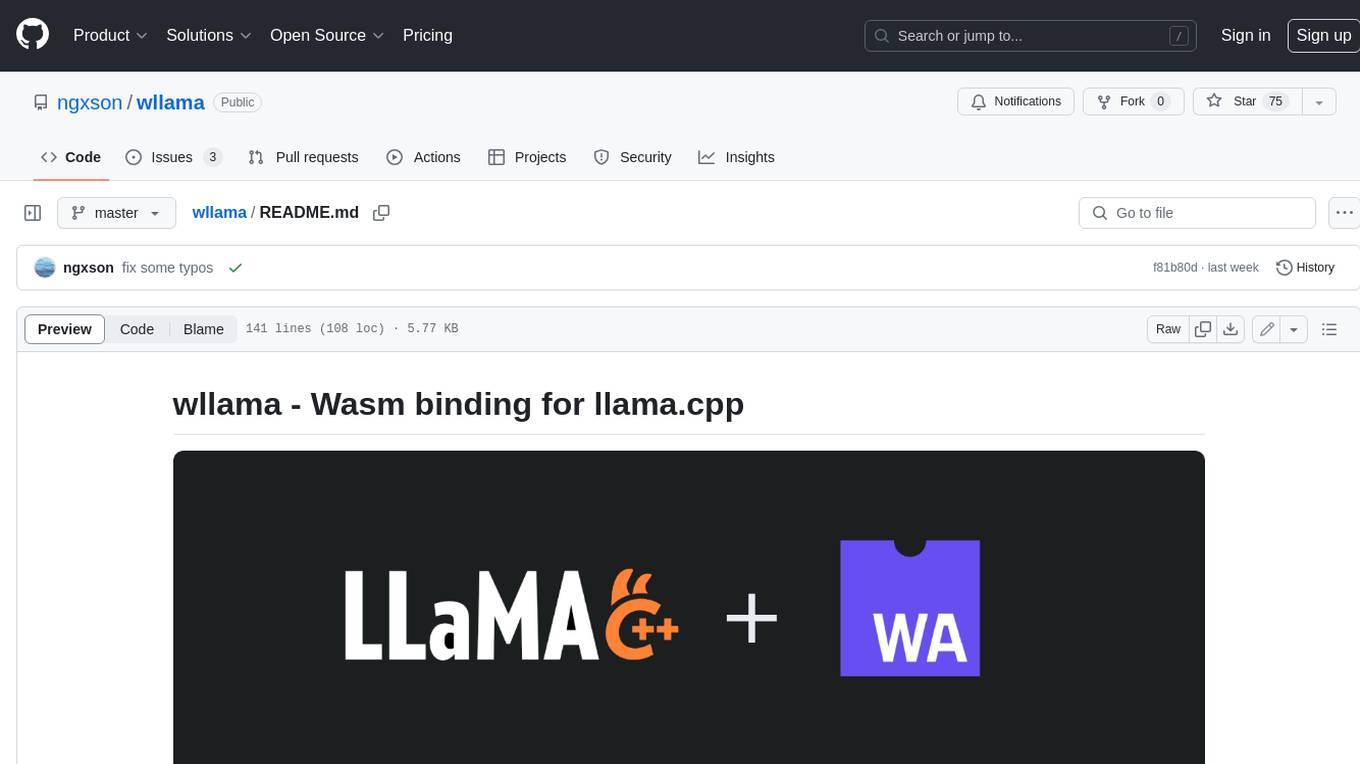
wllama
Wllama is a WebAssembly binding for llama.cpp, a high-performance and lightweight language model library. It enables you to run inference directly on the browser without the need for a backend or GPU. Wllama provides both high-level and low-level APIs, allowing you to perform various tasks such as completions, embeddings, tokenization, and more. It also supports model splitting, enabling you to load large models in parallel for faster download. With its Typescript support and pre-built npm package, Wllama is easy to integrate into your React Typescript projects.
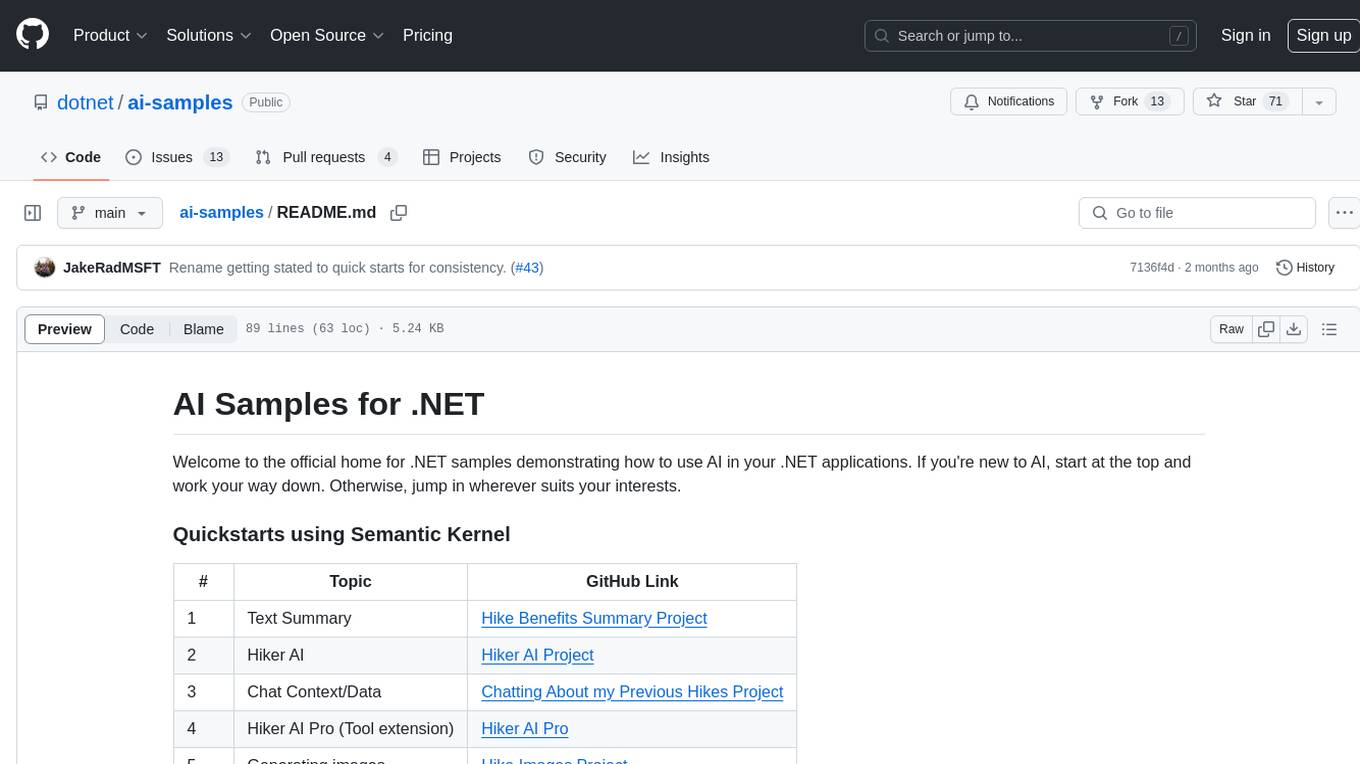
ai-samples
AI Samples for .NET is a repository containing various samples demonstrating how to use AI in .NET applications. It provides quickstarts using Semantic Kernel and Azure OpenAI SDK, covers LLM Core Concepts, End to End Examples, Local Models, Local Embedding Models, Tokenizers, Vector Databases, and Reference Examples. The repository showcases different AI-related projects and tools for developers to explore and learn from.
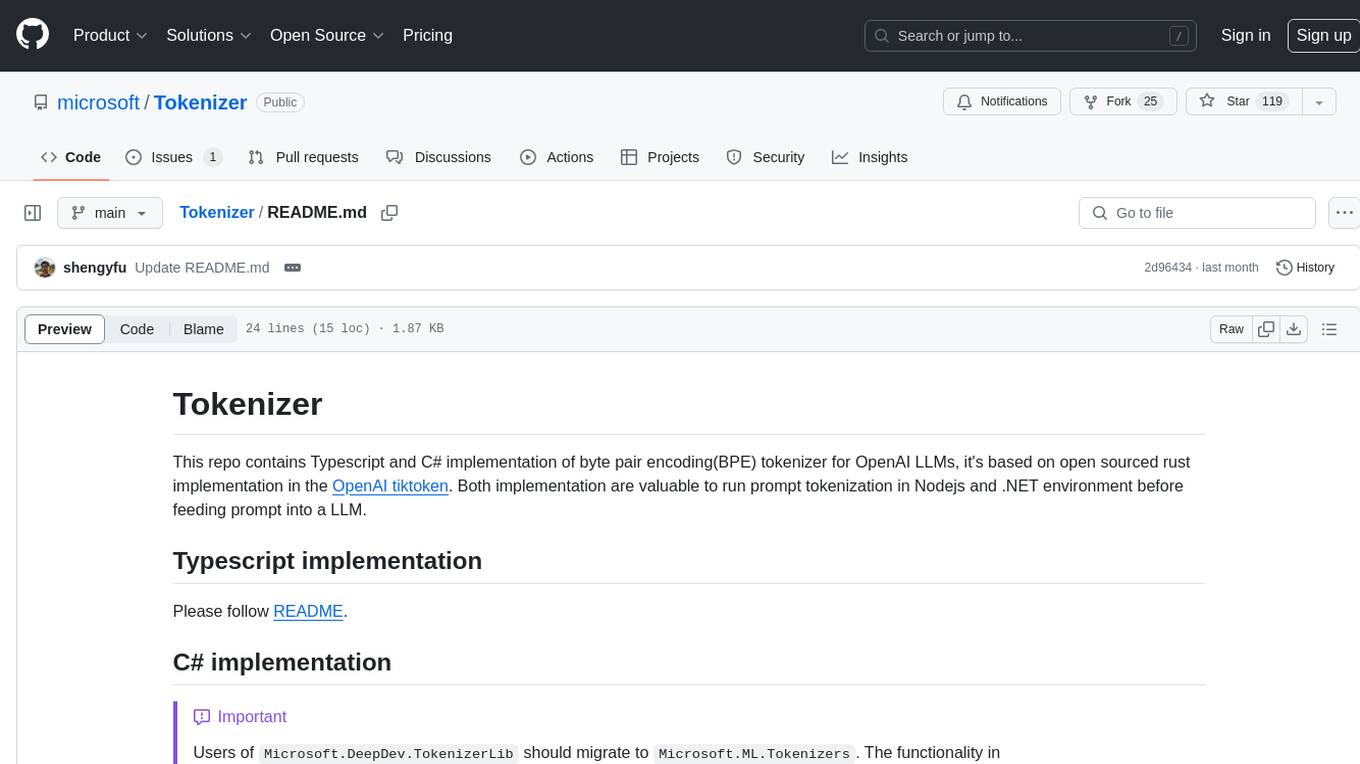
Tokenizer
This repository contains implementations of byte pair encoding (BPE) tokenizer in Typescript and C# for OpenAI LLMs. The implementations are based on an open-sourced rust implementation in the OpenAI tiktoken. These implementations are valuable for prompt tokenization in Nodejs and .NET environments before feeding prompts into a LLM.
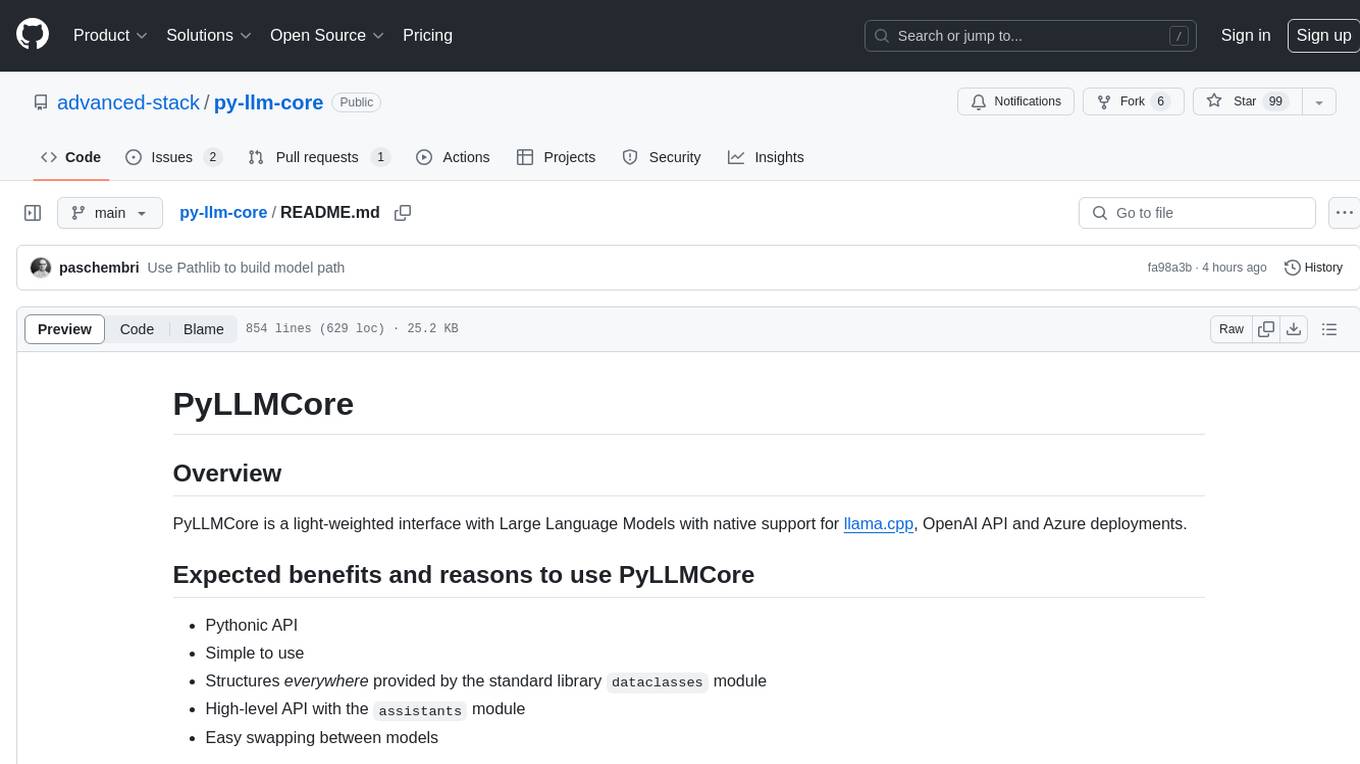
py-llm-core
PyLLMCore is a light-weighted interface with Large Language Models with native support for llama.cpp, OpenAI API, and Azure deployments. It offers a Pythonic API that is simple to use, with structures provided by the standard library dataclasses module. The high-level API includes the assistants module for easy swapping between models. PyLLMCore supports various models including those compatible with llama.cpp, OpenAI, and Azure APIs. It covers use cases such as parsing, summarizing, question answering, hallucinations reduction, context size management, and tokenizing. The tool allows users to interact with language models for tasks like parsing text, summarizing content, answering questions, reducing hallucinations, managing context size, and tokenizing text.
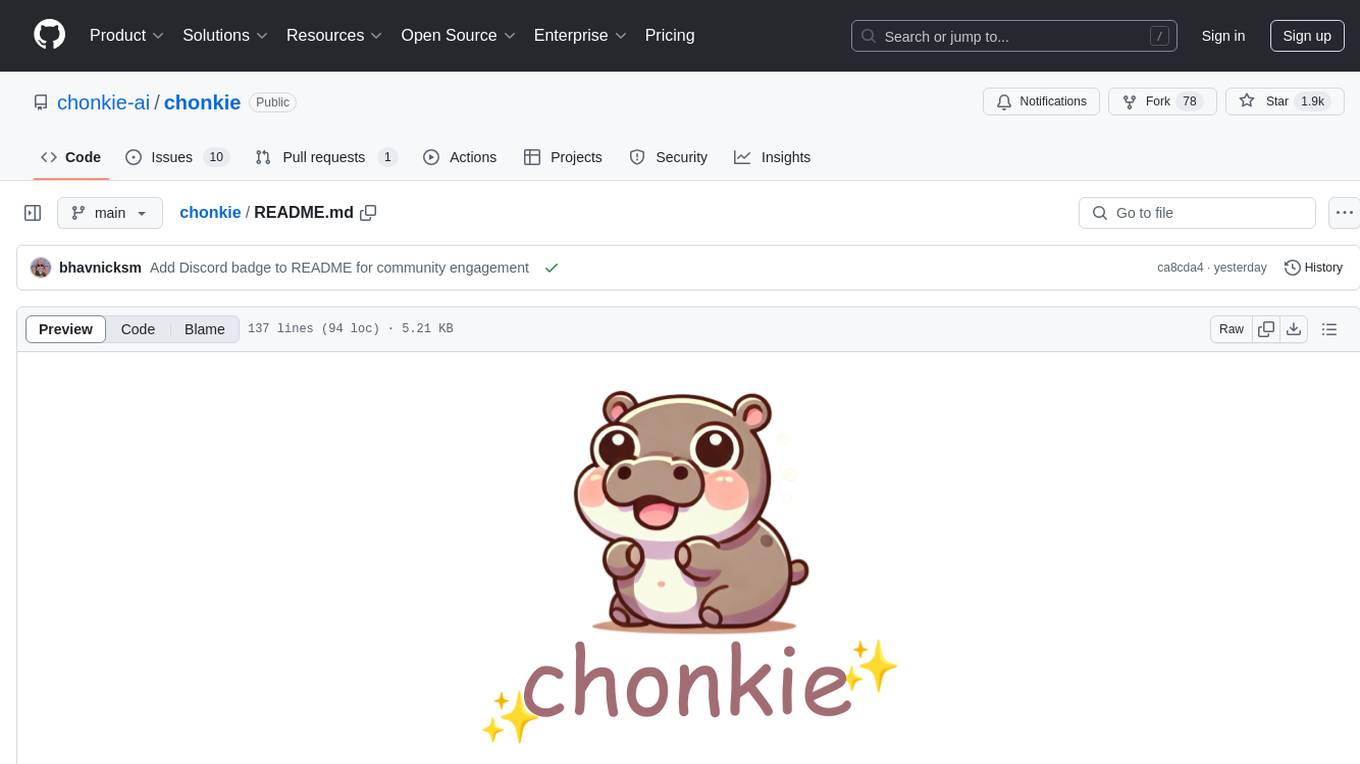
chonkie
Chonkie is a lightweight and fast RAG chunking library designed to efficiently split text for RAG (Retrieval-Augmented Generation) applications. It offers various chunking methods like TokenChunker, WordChunker, SentenceChunker, SemanticChunker, SDPMChunker, and an experimental LateChunker. Chonkie is feature-rich, easy to use, fast, supports multiple tokenizers, and comes with a cute pygmy hippo mascot. It aims to provide a no-nonsense solution for chunking text without the need to worry about dependencies or bloat.
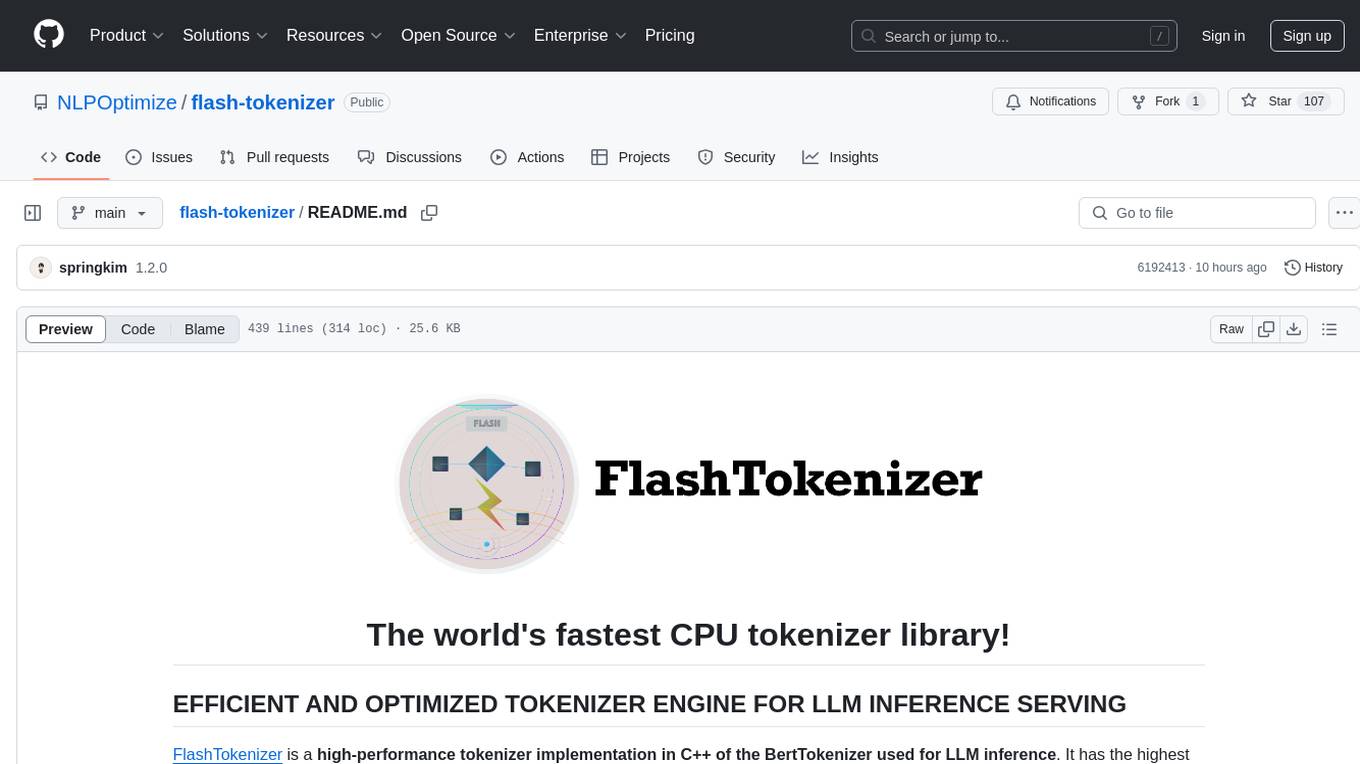
flash-tokenizer
FlashTokenizer is a high-performance CPU tokenizer library implemented in C++ for LLM inference serving. It is 10 times faster than BertTokenizerFast in transformers, offering the highest speed and accuracy. Developed to be faster, more accurate, and easier to use than existing tokenizers like BertTokenizerFast, FlashTokenizer is implemented in C++ for straightforward maintenance. It supports parallel processing at the C++ level for batch encoding, delivering outstanding speed. The tokenizer is based on the LinMax Tokenizer proposed in Fast WordPiece Tokenization, enabling tokenization in linear time.
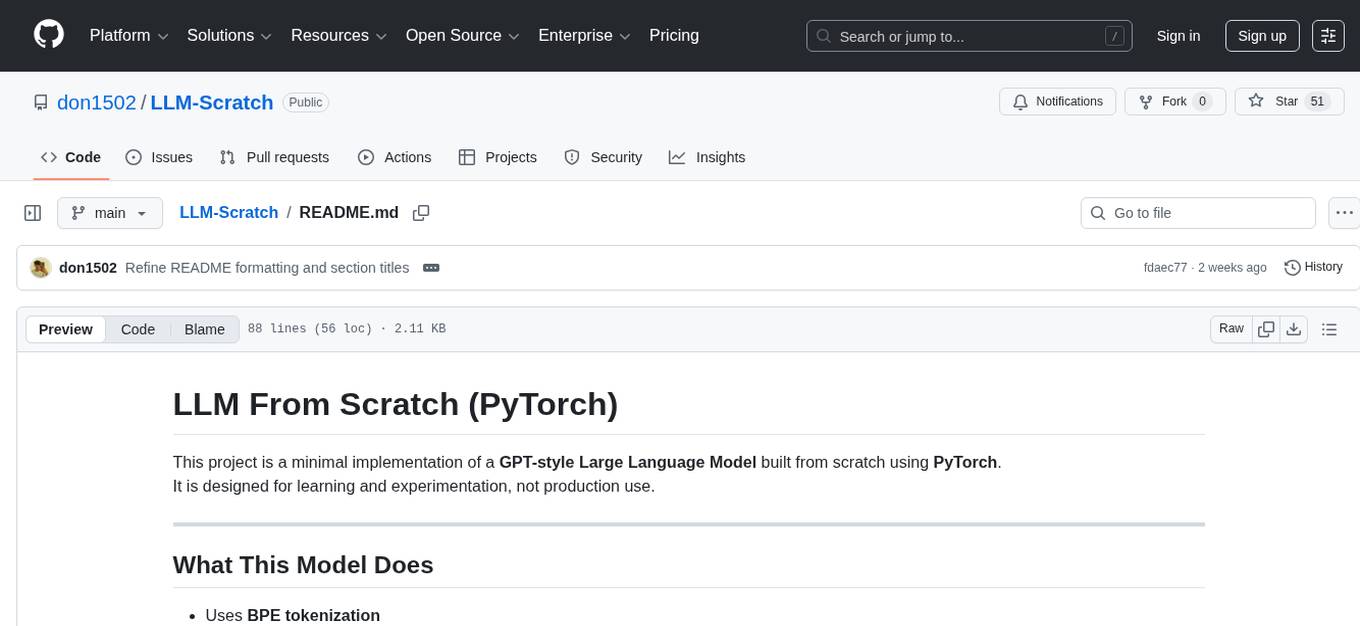
LLM-Scratch
LLM-Scratch is a minimal implementation of a GPT-style Large Language Model built from scratch using PyTorch. It utilizes BPE tokenization, multi head self-attention, feed-forward layers, and layer normalization. The model is designed for learning and experimentation purposes, focusing on autoregressive text generation. The codebase is clean, modular, and extensible, with a character-level tokenizer for easy understanding and no external dependencies like BPE or SentencePiece. The model architecture includes token embedding, positional embedding, transformer blocks with masked self-attention, feed-forward network, residual connections, layer normalization, and a language modeling head. Training objective involves next-token prediction using Cross-Entropy Loss and AdamW optimizer, with training data sampled in fixed-length blocks and gradients backpropagated through time. Configuration parameters are centralized for easy experimentation and reproducibility.